A Guide to Breaking Down knowledge Silos
See how you can break down knowledge silos to foster a culture of collaboration that keeps everyone at your company informed.
Imagine that you’re excited to lead a new project at work. You begin by conducting some market research. Before you can make a thorough work plan, you and a teammate spend a week conducting a SWOT analysis: a method for identifying internal strengths, weaknesses, opportunities, and threats. Later in the week, a colleague on another team casually mentions that they conducted similar research only a few months ago. It never occurred to you to use knowledge from another department to help you with your work. Now, you’re frustrated with how much time you’ve wasted seeking information that already exists within the company.
Keep reading to learn about knowledge silos, explore the types of knowledge silos that can occur within an organization, understand why knowledge silos happen, and view six ways that you can break them down today.
- What is a knowledge silo?
- Types of knowledge silos
- Reasons knowledge silos happen
- 6 ways to break down knowledge silos
What is a knowledge silo?
A knowledge silo is a situation where a single employee, team, or department can access information that is not shared with others. Knowledge silos happen most frequently when individuals or groups work in isolation and have few interactions with other teams within the business.
In some cases, knowledge silos aren’t a bad thing. For instance, it makes sense to only communicate with certain teammates about a project when it requires input from one team. However, knowledge silos can be pervasive, especially in companies with a lot of moving parts. Knowledge silos can cause major disruptions to a team’s workflow when employees intentionally or unintentionally withhold information.
Most companies don’t even realize they have knowledge silos. They simply aren’t sure what needs to be shared with other teams or don’t have systems in place to share knowledge easily. Luckily, there are a few key ways that teams can break down these silos!

Great meetings are just the start
Level up your meeting habits to boost engagement and productivity with a collaborative meeting agenda. Try a tool like Fellow!
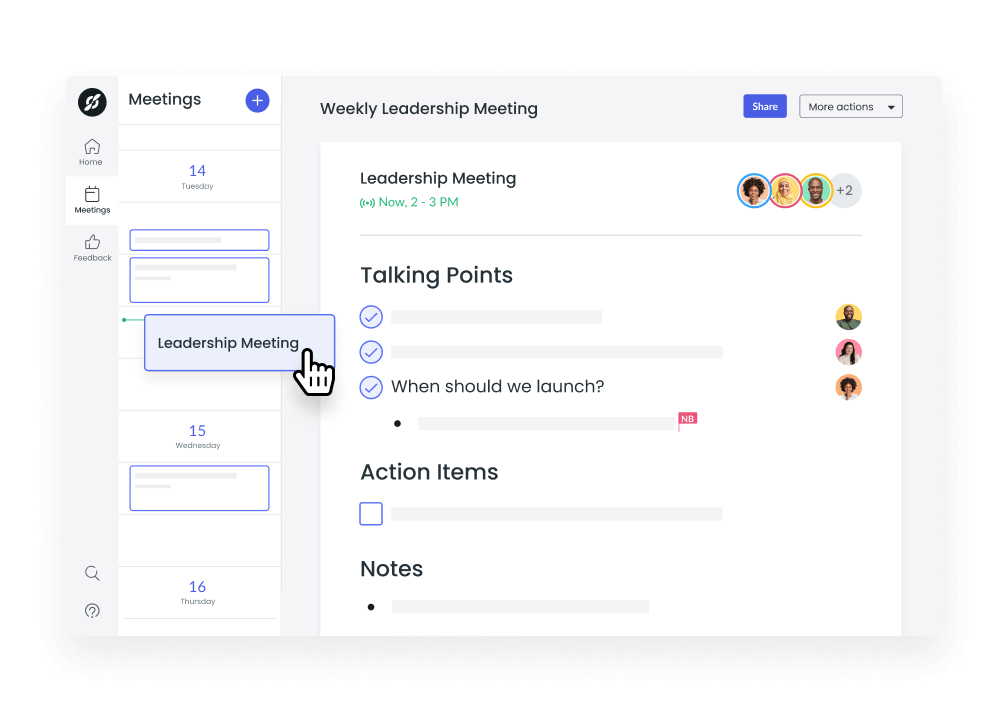
Types of knowledge silos
1Channel silos
A channel silo happens when multiple digital channels or systems exist without interconnectivity and data sharing. There may be a disconnect between teams within a business that support different customer channels. These silos most commonly emerge in customer service, sales, and marketing. The presence of gaps or inconsistent experiences between channels can be harmful to your company’s brand and bad for revenue growth.
2Department silos
Department silos are the most common knowledge silos. These occur when individual departments within a company use their own processes, systems, or tools for sharing information. When departments or groups are segmented from the flow of information in other parts of the company, employees miss out on the opportunity to use knowledge from others’ findings to their advantage.
3Buyer’s journey silos
A buyer’s journey describes a buyer’s path to purchase a product or service. A buyer’s journey silo occurs when teams and departments fail to communicate with each other about what stage a customer is at in their buyer journey. For instance, if a sales team attempts to sell a customer a product or service they have already acquired, the customer may become frustrated.
Reasons knowledge silos happen
- Poor alignment
- Resistance to change
- Lack of collaboration
- Poor employee onboarding
- Competitive mindsets
- Lack of trust
1Poor alignment
Poor alignment occurs when company leaders fail to communicate with employees about the vision, goals, and standard processes for the entire company. This can unfortunately trickle down to the department or team level and set the tone for other employees. Companies with an alignment problem may have employees who are too focused on individual or team initiatives to see the bigger picture. Poor alignment can be solved by clear and open communication between company leadership and other employees.
2Resistance to change
Resistance to change occurs when employees are unwilling to adapt to new ways of doing things. If a team or department has been successful without help from others, there is bound to be resistance surrounding new knowledge-sharing systems. They may also be comfortable with their current processes or believe that their team’s work won’t benefit from eliminating knowledge silos.
3Lack of collaboration
A lack of collaboration may cause staff to become disengaged or lose motivation. Teams that aren’t used to sharing up-to-date information, knowledge, and insights with members of other teams are especially susceptible to knowledge silos.
4Poor employee onboarding
If employees don’t receive adequate training on how to document and share information with other individuals, teams, and departments, they will develop their own siloed workflow. To avoid knowledge silos from the beginning, leaders must set expectations for communicating valuable information with members of other teams and departments during the onboarding process.
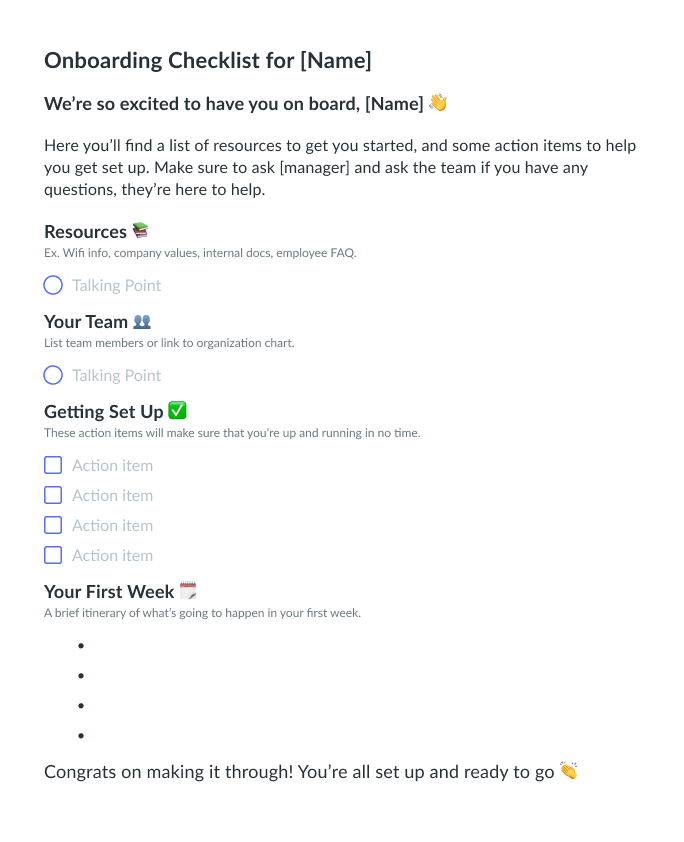
5Competitive mindsets
Individuals and teams that have been conditioned to be competitive with their peers at work may not want to share information. Internal competition can lead to poor communication and an atmosphere of rivalry that hinders productivity. While there isn’t anything wrong with a bit of healthy competition in the workplace, leaders should discourage employees from gatekeeping information that will stifle progress toward goals.
6Lack of trust
A lack of trust at work can occur due to unfair treatment, unresolved conflicts, and substandard communication. Mistrust may also take place when individuals or teams guard information for fear that other groups might use it out of context. Building trust in the workplace requires a lot of hard work from all levels of the company but is worth it so that employees feel comfortable collaborating and speeding up processes.
6 ways to break down knowledge silos
- Communicate often
- Create a system for document sharing
- Provide regular opportunities for employees to ask questions
- Set common goals
- Invest in collaborative tools
- Organize team-building activities
1Communicate often
If you want to break down knowledge silos within your company, you must begin by improving how you and your employees communicate. Communicate the company’s mission, vision, and objectives to employees often so everyone understands how their day-to-day work contributes to larger organizational objectives.
Use Fellow to streamline communication within your organization. Our tool can help you run productive one-on-ones and team meetings, record decisions, and hold each other accountable for your goals. The best part is that you don’t have to create your meeting agendas from scratch. Check out our 500+ ready-to-use meeting agenda templates to kickstart collaboration!
2Create a system for document sharing
From Google Drive to Dropbox to OneDrive, there are a variety of platforms that your team can use to easily share documents.
Our advice: Use Fellow’s meeting notes feature to easily share and collaborate on notes with other employees. You and your colleagues can embed documents in your meeting notes so that everything you need to have an effective session can be found in one place. Fellow also integrates with popular document-sharing software so you can create a central hub for all meeting-related files, reports, and supporting documents in your meeting agendas!

3Provide regular opportunities for employees to ask questions
Breaking down silos involves facilitating conversations across different areas of the company. If you want to encourage knowledge sharing, you must give employees frequent opportunities to make suggestions, ask important questions, and request expertise as needed.
One way to break down silos is by creating cross-functional networks within your company that allow employees to learn from others with whom they would not have interacted otherwise—for example, hosting monthly meetings between sales and marketing teams where employees can refine ideas and ask and answer questions.
4Set common goals
Business success relies on many individuals and teams working towards similar objectives. When everyone’s goals are aligned, you empower employees to share knowledge freely and widely. Try different goal-setting techniques like SMART goals and objectives and key results (OKRs) to see what works best for your business needs.
Use Fellow to track OKRs as part of your team’s meeting workflow. With our Objectives tool, teams can record, define, track, and review the progress of OKRs before, during, and after team meetings.
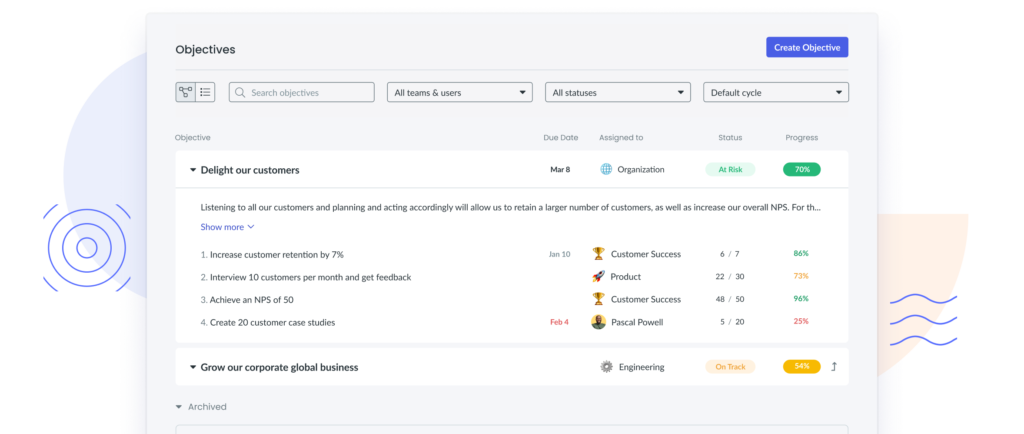
5Invest in collaborative tools
The right collaborative tools can make breaking down knowledge silos much easier. Digital tools can significantly boost efficiency and productivity within your company by helping everyone share documents, communicate asynchronously, and share new ideas.
Did you know that Fellow’s collaborative approach transforms meetings into productive work sessions you’ll want to attend? With Fellow, you can build meeting agendas collaboratively to foster effective communication and knowledge sharing.
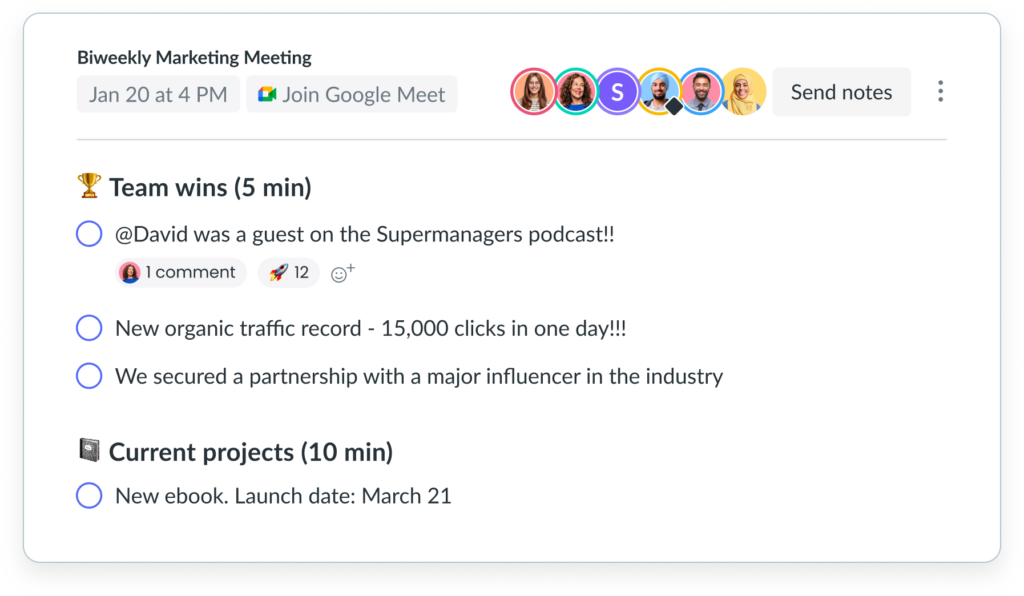
6Organize team-building activities
Regular team-building activities can help build trust within a team. They are also an opportunity for team members to better communicate and problem-solve efficiently. Break down knowledge silos by having employees interact regularly during team meetings. You can even schedule an outing like an escape room or scavenger hunt after hours to help employees get to know each other. If your employees work remotely, have them complete personality tests, host a trivia game, or play two truths and a lie during a virtual team-building session to help them bond.
Parting advice
One of the greatest obstacles to breaking down knowledge silos is convincing employees that making their information available to others is worth their time.
Start by setting incentives for employees. Lead by example by sharing knowledge with other individuals, teams, departments, and the entire company whenever possible. Before you know it, your company will be full of master knowledge sharers!









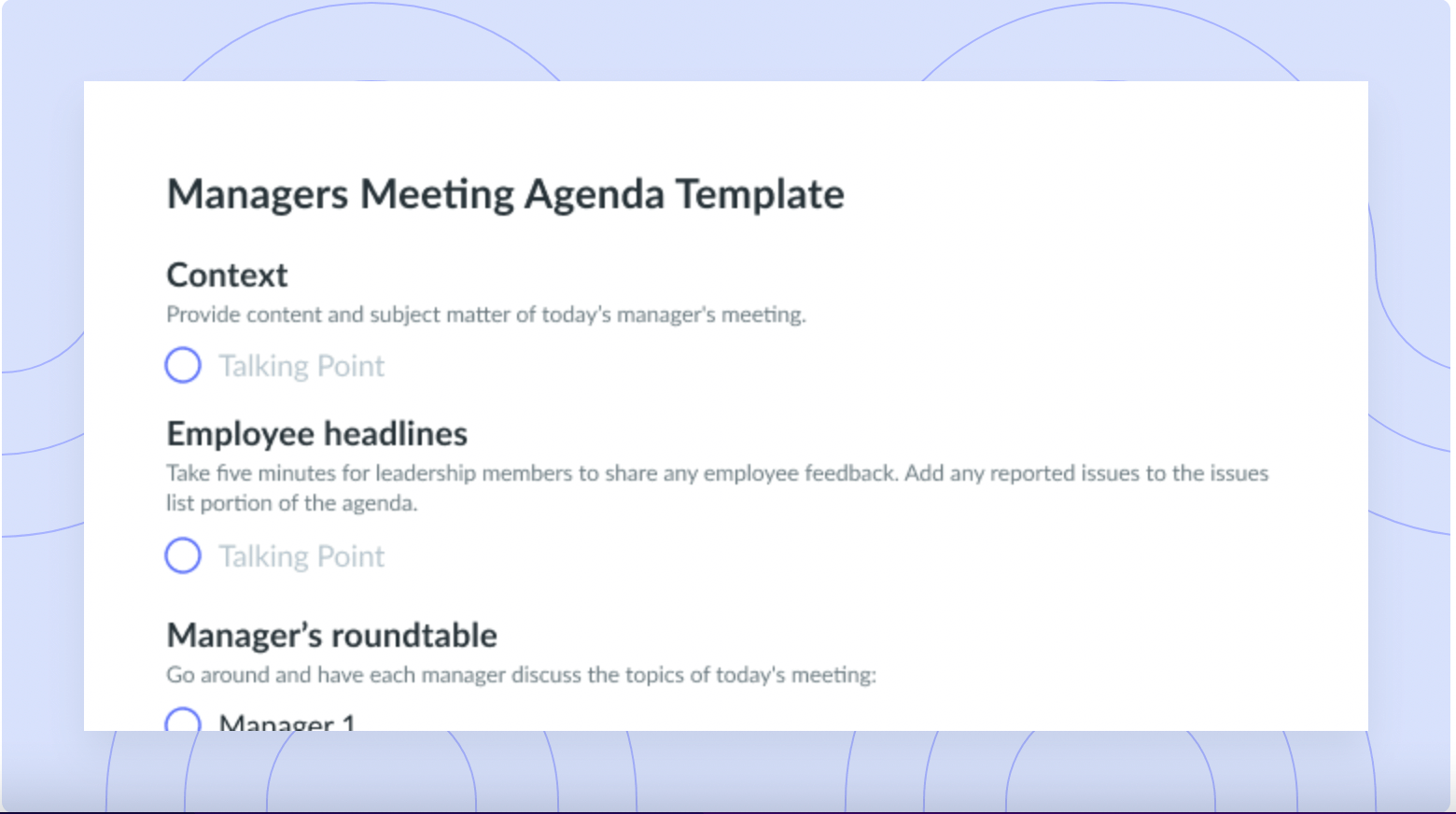
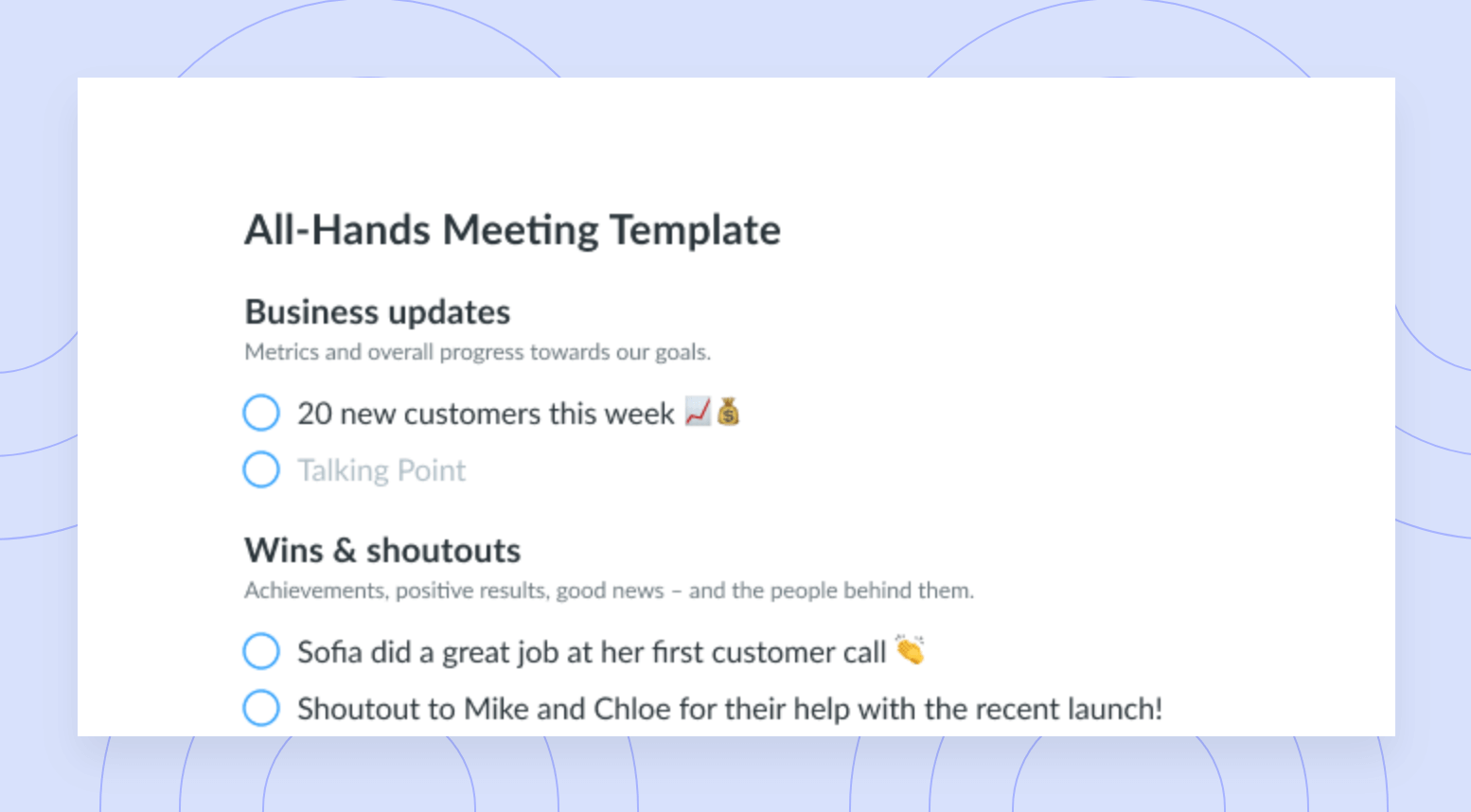
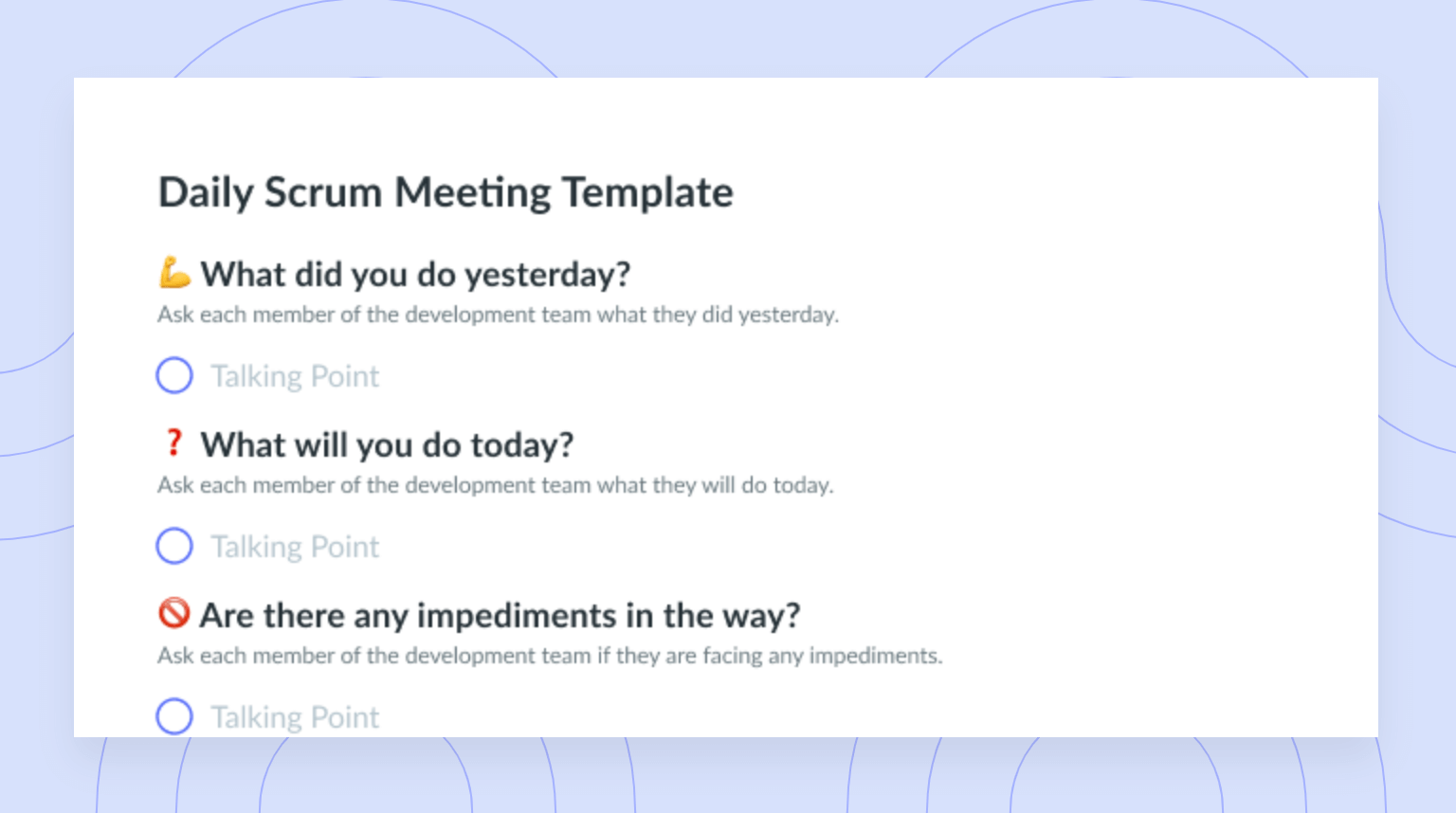
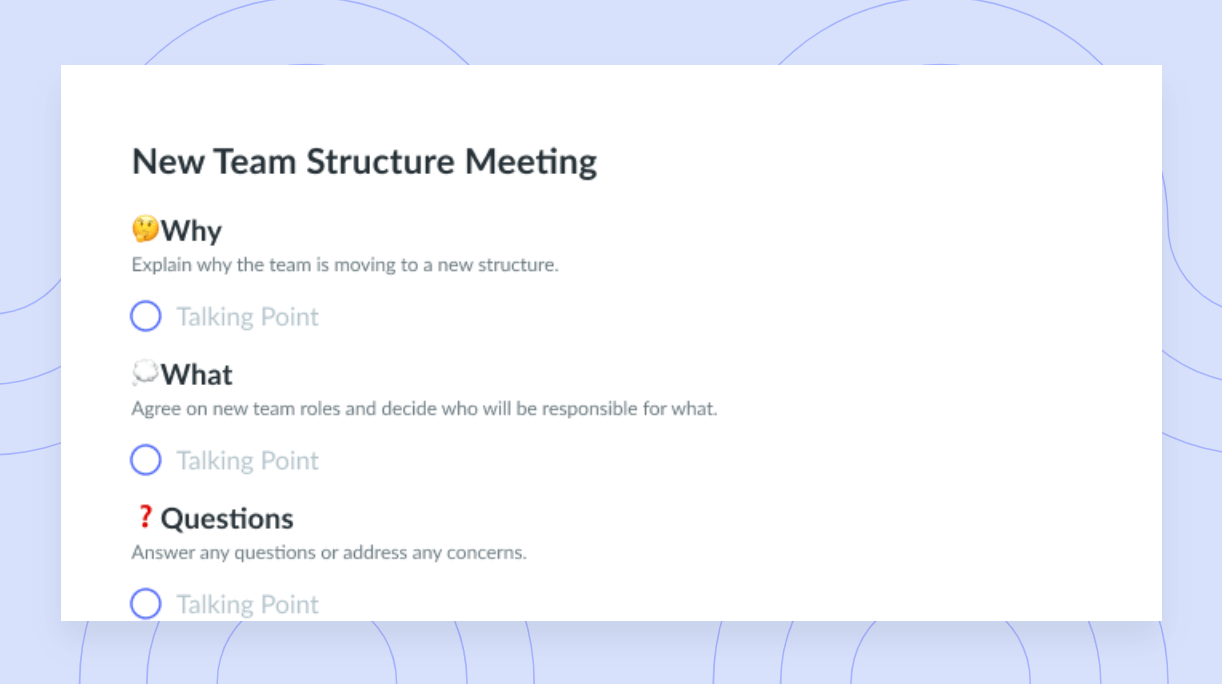
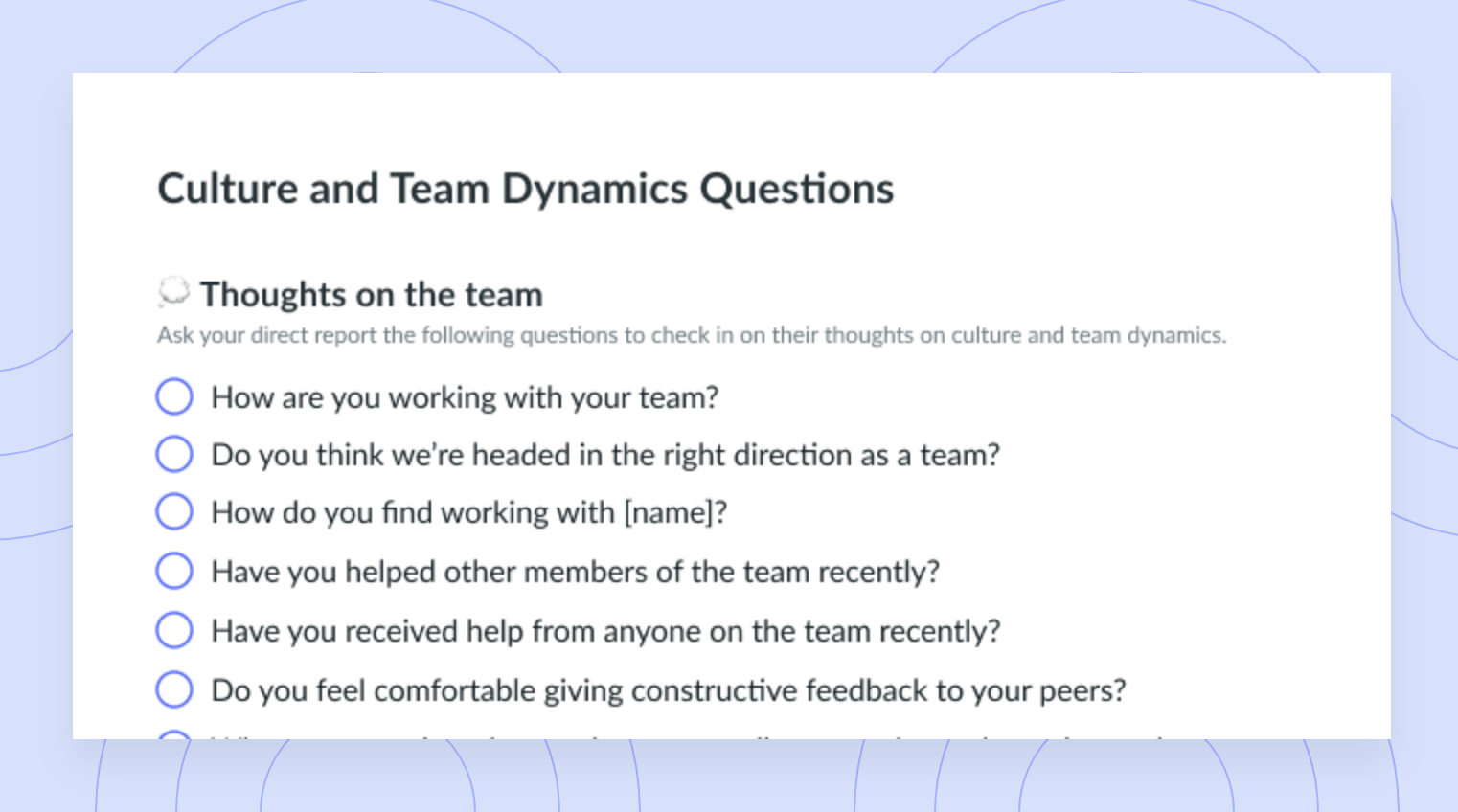
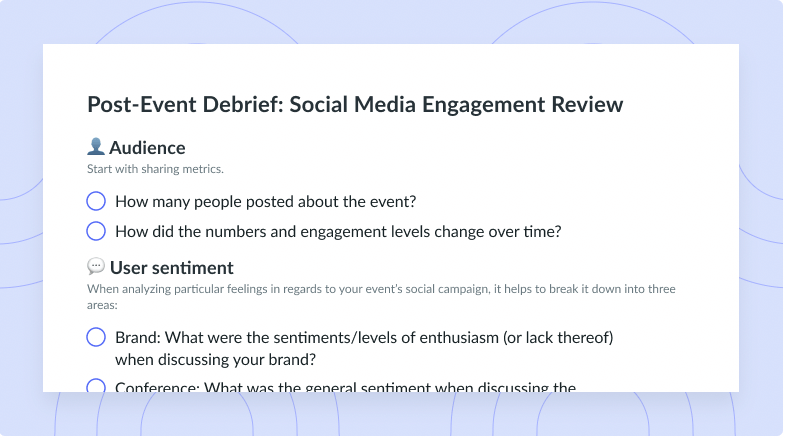
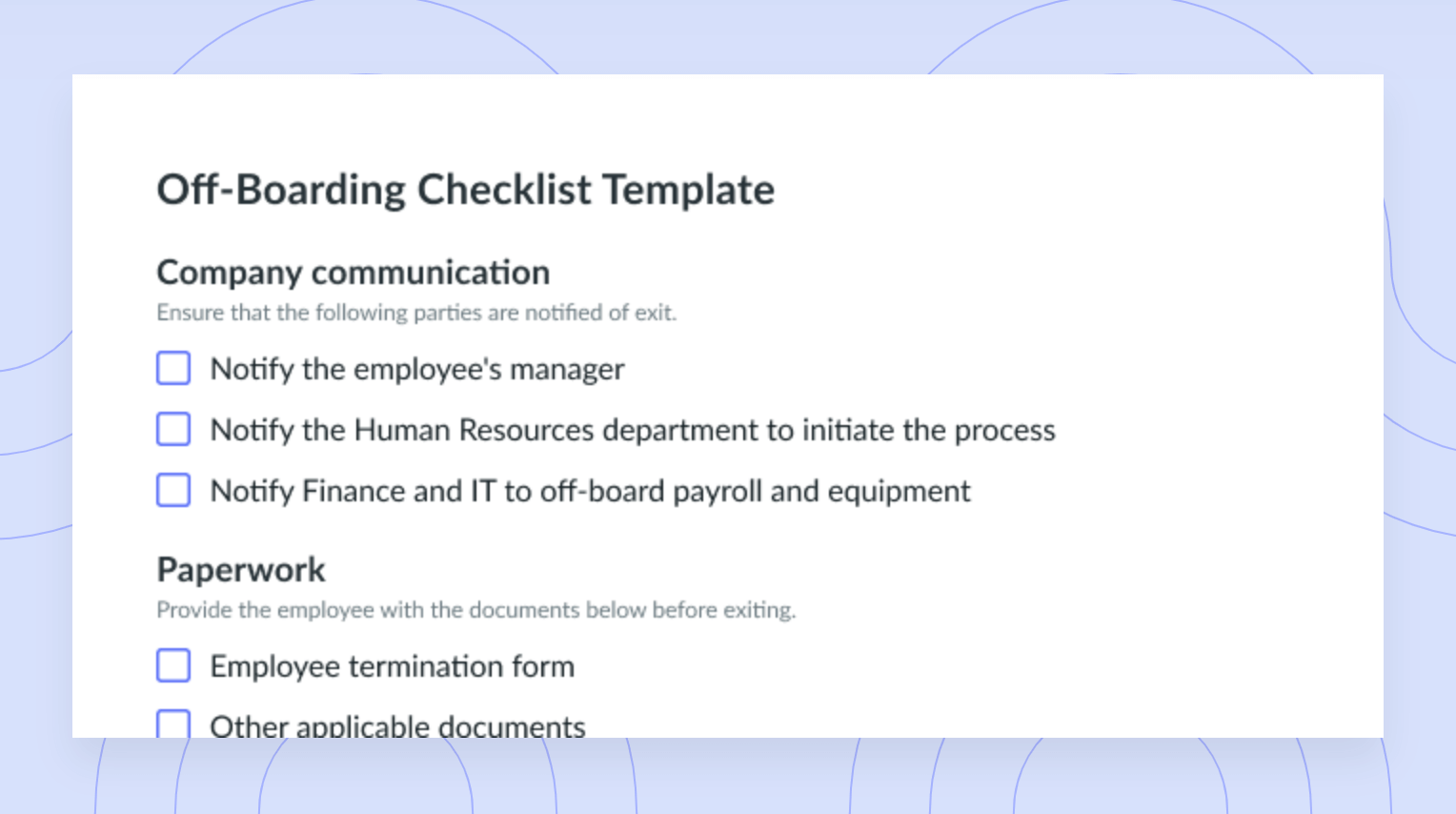
![Crisis Management Round Table [Daily Check-In] Template](https://fellow.app/wp-content/uploads/2021/09/Crisis-Management-Round-Table-Daily-Check-In-preview.png)
![COVID Update Meeting [Government Department] Template](https://fellow.app/wp-content/uploads/2021/09/COVID-Update-Meeting-Government-Department-preview.png)










